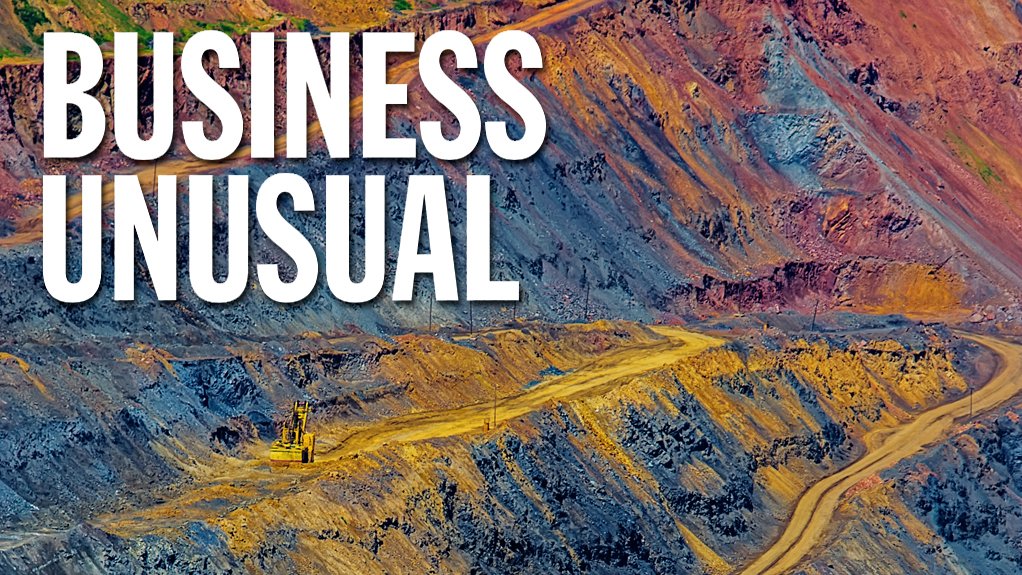Mining industry faces a new reality amid and beyond Covid-19
( May 11, 2020)
During the Covid-19 pandemic, the global mining industry faced a new reality, namely, measures to curb the spread of viruses, affecting the economy, mining operations and their supply chains, manufacturing, the public, and in turn the demand for minerals and metals. As of mid-April, almost all countries are affected by Covid-19, whether directly infected or indirectly through trade relations.
This new reality in the mining industry includes increasingly volatile commodity prices, executive pay cuts, layoffs or forced unpaid leave, limited mining and processing operations (if any) and travel restrictions, physical evacuation measures and special Precaution. Not only limits the spread of coronavirus, but also reduces its economic impact.
Some miners have already adapted, virtually presided over meetings and held online auctions or tender procedures. However, due to cost factors, business model factors, or the general nature of the business, this rapid digital transition is not the norm.
Covid-19 has brought uncertainty in the recent development of many mining operations. Once infected with a virus, this may prompt people to increasingly adopt automatic and digital lightning protection solutions. Many miners withdrew production and distribution guidance to save cash, while other miners postponed the issuance of financial statements to first assess the impact of Covid-19. Fitch, a rating agency, predicts that this year ’s global gross domestic product (GDP) will shrink by 1.9%, which will translate into a reduction in demand for many commodities, including copper, which is said to be down 6% year-on-year .
Weakened demand
 Fitch said the demand for nickel in industries using stainless steel has weakened, and the aluminum market has been oversupplied due to weak global automobile production.
However, Covid-19 helped promote cooperation between governments and miners around the world, such as information sharing, and mining companies supported governments and communities by donating funds and necessities.
David Bonaparte, director of the World Diamond Council and chief executive of the American jeweler, described the impact of the jewelry retail industry as "dramatic", especially in the United States, in Covid, Washington, New York, and California. -19 hot spots to close the store.
He pointed out that this pandemic has exacerbated the hunger and demand for information in the diamond and jewelry industry.
The committee held various webinars, focusing on issues related to Covid-19, including topics such as store security, employment law, social media best practices, legal compliance, online sales payment processing, and tips for dealing with recession .
Fitch said the demand for nickel in industries using stainless steel has weakened, and the aluminum market has been oversupplied due to weak global automobile production.
However, Covid-19 helped promote cooperation between governments and miners around the world, such as information sharing, and mining companies supported governments and communities by donating funds and necessities.
David Bonaparte, director of the World Diamond Council and chief executive of the American jeweler, described the impact of the jewelry retail industry as "dramatic", especially in the United States, in Covid, Washington, New York, and California. -19 hot spots to close the store.
He pointed out that this pandemic has exacerbated the hunger and demand for information in the diamond and jewelry industry.
The committee held various webinars, focusing on issues related to Covid-19, including topics such as store security, employment law, social media best practices, legal compliance, online sales payment processing, and tips for dealing with recession .
Bonaparte said: "Industry organizations are sharing information at an unprecedented rate to help the larger industry get through this period." He added that during this period, companies often join forces to create support or resource networks. In Australia, the Australian Minerals Commission, senior representatives of mining companies and state associations hosted a working group meeting to discuss how the industry can work together to support the communities in which it operates and share information to ensure mine safety and production. The country began a blockade on March 23. Gold mining company Newcrest has set up a $ 20 million community support fund to assist Australian host communities during the pandemic, including some vaccine research funds. In addition, mining giant BHP Billiton has also established an important resource fund in the amount of A $ 50 million to support the Australian regional communities within the company's operations, which face some major challenges in medical services. Meanwhile, diversified miner Glencore launched a $ 25 million fund for the Covid-19 pandemic last month to support governments and health agencies in more than 35 countries.